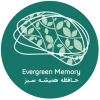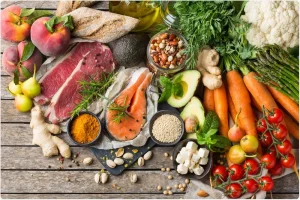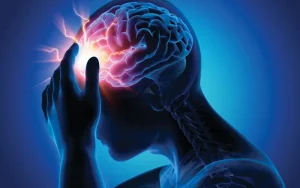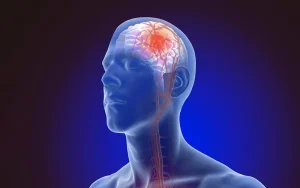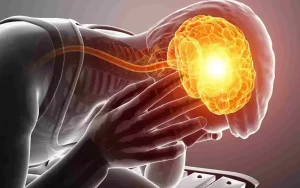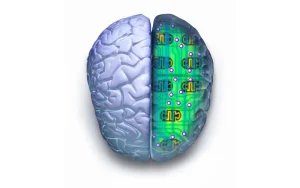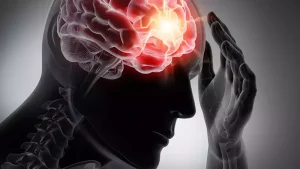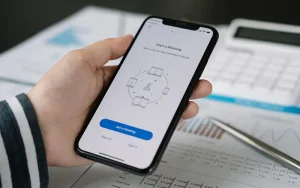In a preliminary study across multiple centers in China, intravenous injections of ginkgo biloba components, specifically ginkgo diterpene lactone meglumine (GDLM), demonstrated significant improvement in early cognitive recovery among 3,163 ischemic stroke patients compared to a placebo group. The research suggests that GDLM’s neuroprotective properties, such as antioxidation and anti-inflammation, could potentially provide a novel approach to enhance post-stroke cognitive function. However, given that the study was funded by the drug’s manufacturer, further research is essential to validate its efficacy and safety before considering clinical application.
Key Points:
- Stroke survivors administered GDLM exhibited notable cognitive enhancements compared to those given a placebo, indicating potential advantages for post-stroke recovery.
- GDLM injections derive from the active elements of ginkgo biloba, an herb traditionally used in China and acknowledged for its antioxidant properties.
- The encouraging outcomes of the study underscore the necessity for more comprehensive trials to validate the safety and effectiveness of GDLM in stroke recovery. This emphasizes the importance of carefully integrating complementary medicines into cardiovascular care.
Individuals experiencing ischemic (clot-induced) strokes exhibited improved early recovery of cognitive function when subjected to intravenous injections containing a combination of biologically active components extracted from ginkgo biloba within the initial two weeks following the stroke, as reported in a preliminary study scheduled for presentation at the American Stroke Association’s International Stroke Conference 2024. This conference, set to take place in Phoenix from Feb. 7-9, stands as a premier global gathering for researchers and clinicians dedicated to advancing the understanding of stroke and brain health.
Ginkgo biloba, derived from the dried leaves and seeds of the ancient ginkgo tree native to East Asia, is a well-known herb widely utilized in traditional Chinese medicine and available as a supplement in the United States.
In China, compounded therapies containing the active ingredients of ginkgo biloba, administered intravenously, are commonly employed for stroke treatment due to their potential antioxidant properties, which may safeguard nerve cells from damage.
It is important to note that ginkgo biloba lacks approval from the U.S. Food and Drug Administration for any medicinal use. The National Center for Complementary and Integrative Health, a division of the National Institutes of Health, emphasizes the absence of sufficient evidence to support non-FDA approved applications.
Earlier in 2023, researchers from this study shared the findings of a multicenter trial in China, revealing improved recovery from overall stroke symptoms among individuals treated with daily injections of ginkgo diterpene lactone meglumine (GDLM), a combination of biologically active components from ginkgo biloba. The present investigation specifically focused on analyzing the cognitive recovery of participants involved in that study.
“If our positive findings are substantiated in other trials, GDLM injections may potentially be employed to enhance cognitive function in patients following ischemic stroke,” expressed Dr. Anxin Wang, an associate professor of clinical epidemiology at the Beijing Tiantan Hospital of the Capital Medical University in Beijing.
In this study, the cognitive recovery of 3,163 stroke survivors (average age of 63 years; 36% women) treated for mild to moderate ischemic stroke at 100 centers in China was examined by researchers. Commencing within 48 hours of the stroke, approximately half of the survivors were randomly assigned to receive daily intravenous injections of 25 mg of GDLM for 14 days, while the remaining half received daily intravenous placebo injections.
Cognitive performance was evaluated before treatment, at 14 days, and at 90 days using the Montreal Cognitive Assessment scale (MoCA), a 30-point face-to-face screening test commonly utilized with stroke survivors. At baseline—within 48 hours of the stroke and before initiating treatment—most patients exhibited moderately impaired cognitive status, with an average score of 17 out of 30.
In comparison to their initial cognitive screening results:
- By day 14, stroke survivors administered the ginkgo biloba compound injections exhibited improved cognitive scores compared to those receiving the placebo (an average of 3.93 points vs. 3.62 points higher, respectively).
- By day 90, individuals receiving the ginkgo biloba compound injections demonstrated even more enhanced cognitive scores compared to those receiving the placebo (an average of 5.51 points vs. 5.04 points).
Dr. Wang stated, “The proportion of patients reaching a clinically significant level of improvement was 20% higher in the GDLM group, suggesting that GDLM injections may enhance cognitive function in patients with acute ischemic stroke.”
As the follow-up duration in this study was only 90 days, the long-term effects of GDLM injections necessitate further research.
Dr. Wang highlighted GDLM’s neuroprotective effects through various mechanisms, including the dilation of brain blood vessels, improved tolerance of brain cells to hypoxia, and increased cerebral blood flow. Additionally, GDLM possesses antioxidation, anti-inflammation, and anti-apoptosis (cell death) properties. Laboratory studies have also suggested that GDLM may promote the secretion of chemicals associated with preventing neurodegenerative diseases, such as Parkinson’s and Alzheimer’s.
A 2022 American Heart Association Scientific Statement on Complementary and Alternative Medicines in the Management of Heart Failure emphasized the potential benefits and serious risks associated with these treatments, underscoring the importance of involving the healthcare team in decision-making.
“While this statement from the American Heart Association specifically addressed supplement use in heart failure patients, the same level of caution and approach should be applied when managing all cardiovascular conditions, including stroke,” emphasized Sheryl L. Chow, Pharm.D., FAHA, chair of the scientific statement writing committee. She is an associate professor of pharmacy practice and administration at Western University of Health Sciences in Pomona, California, and an associate clinical professor of medicine at the University of California, Irvine.
Chow added, “Stroke patients should consult with their doctor and pharmacist before taking ginkgo biloba or any other herbs or supplements. If future clinical trials validate the effectiveness of this new research, it could become a valuable tool for post-stroke care. However, efficacy and safety must be demonstrated to meet the same standards as all prescription medications and secure FDA approval.”
It is essential to recognize that this study was an exploratory analysis conducted within a larger trial, necessitating confirmation of the results in an independent trial. Moreover, the outcomes observed in Chinese adults may not be universally applicable to individuals in other countries.
Co-authors and disclosures for the study are outlined in the abstract, with funding provided by Jiangsu Kangyuan Pharmaceutical Co., the manufacturer of the IV compound tested in this trial.
Reference
https://neurosciencenews.com/ginkgo-biloba-cognition-stroke-25553/
